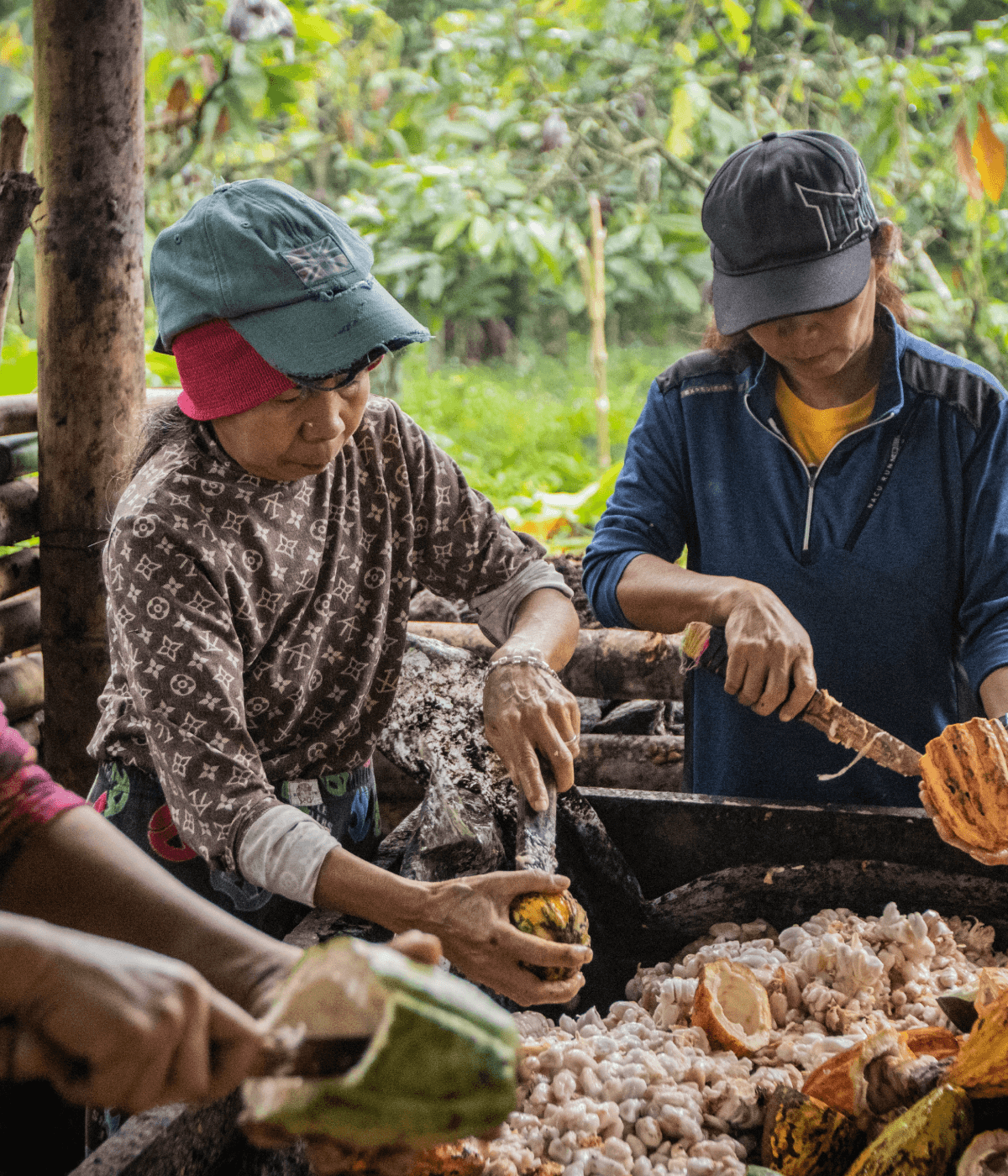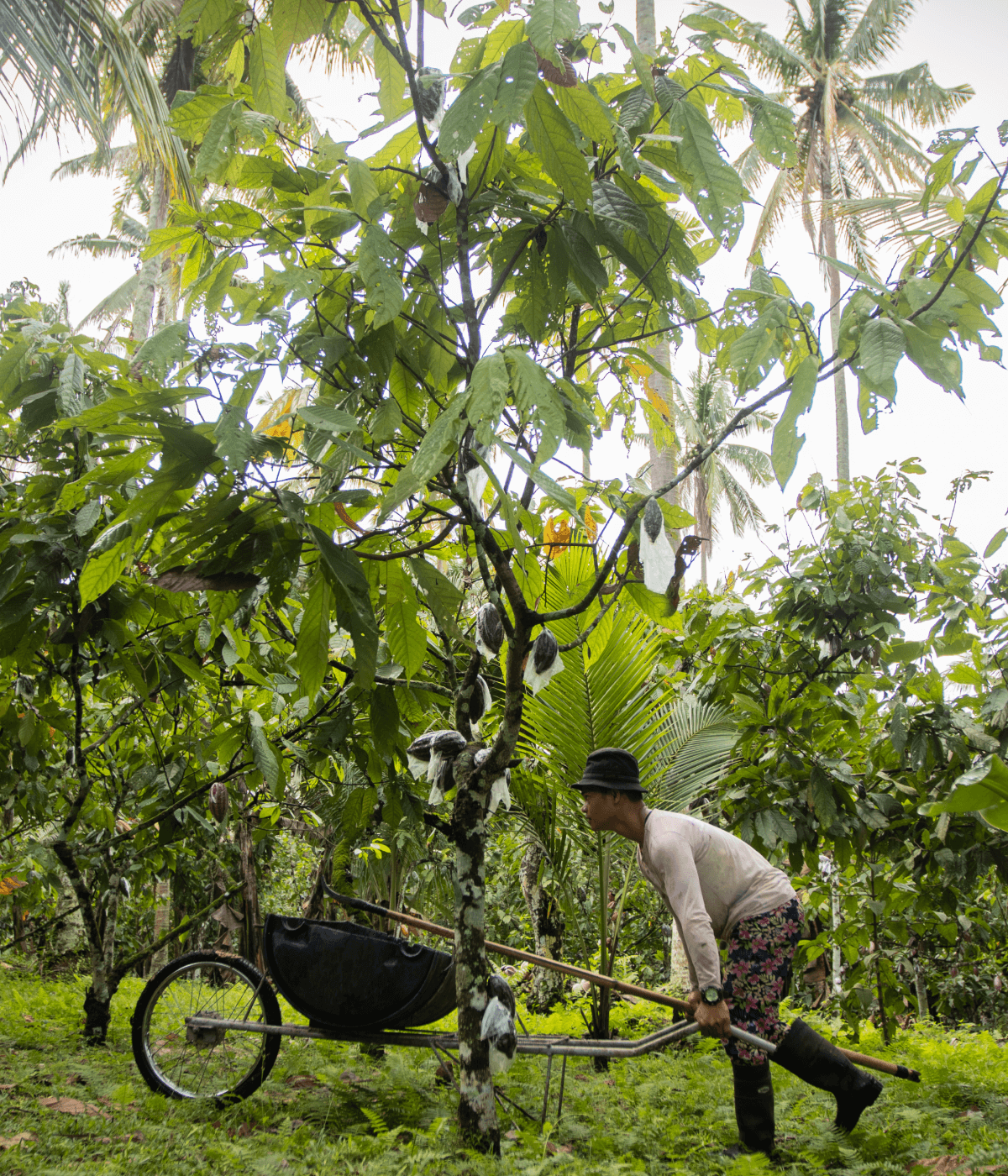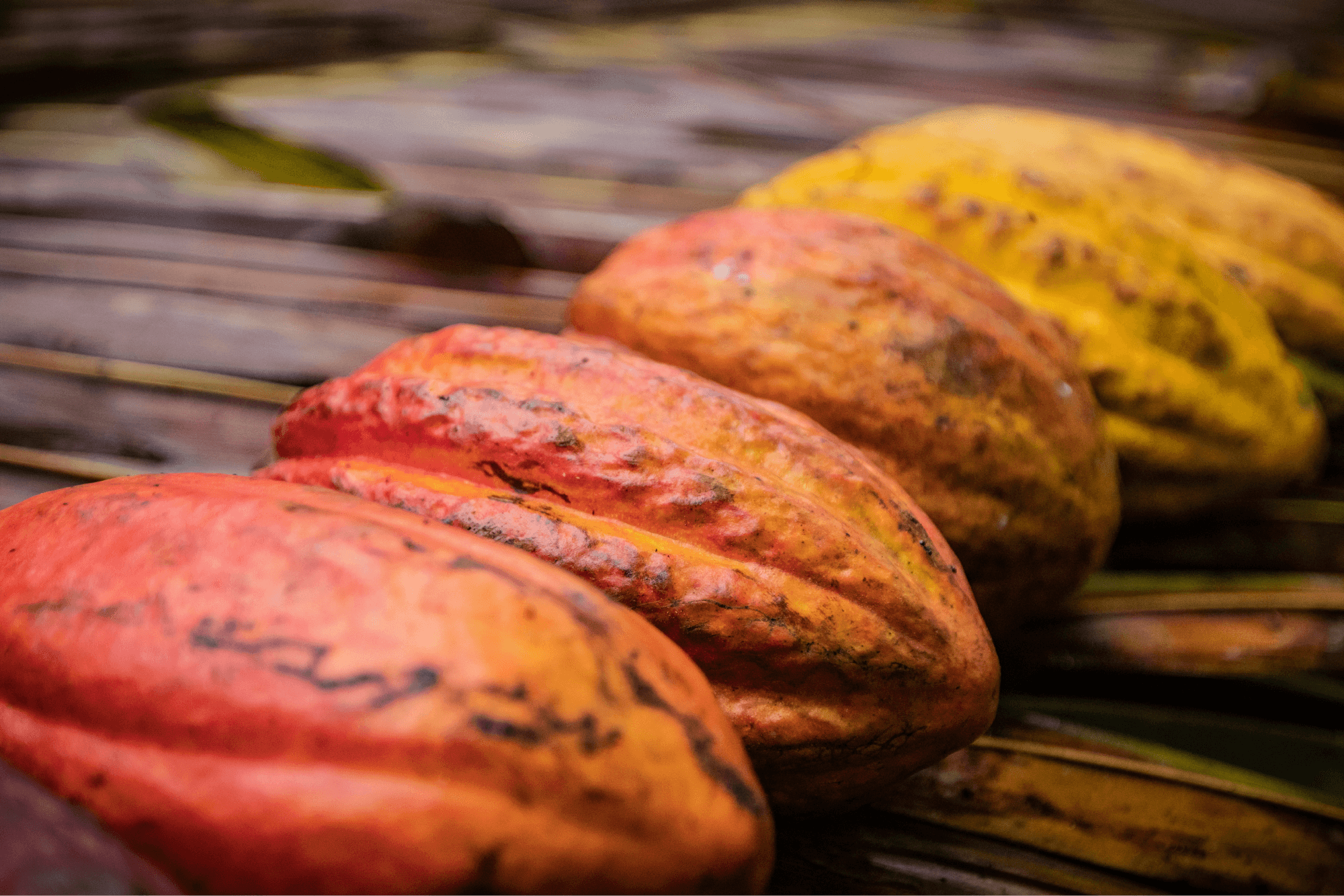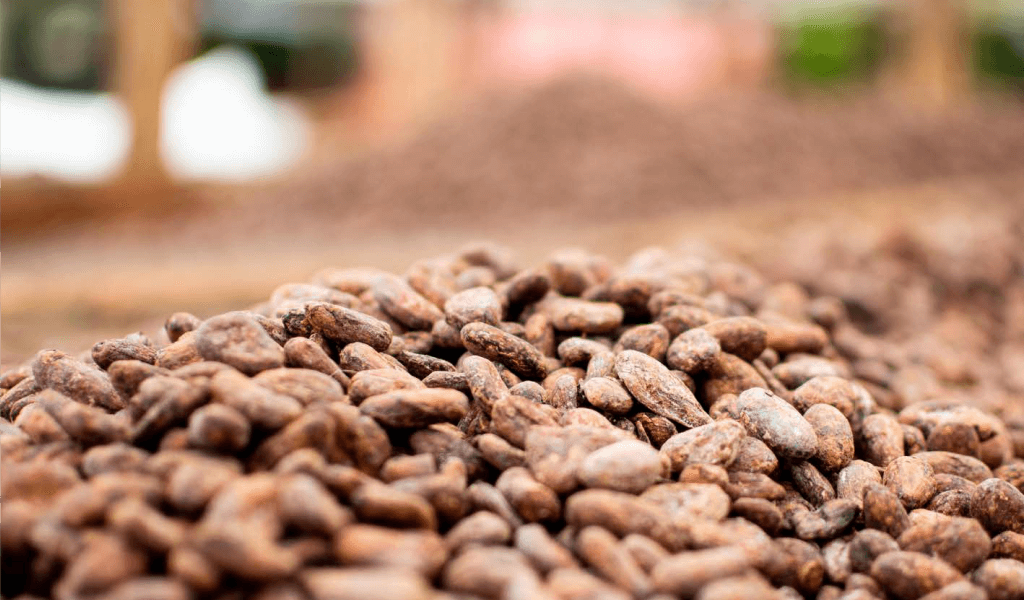Philippines
Kablon Farms
Organic, deep fudge cocoa produced by multiple generations working together on a family estate.
2024 Data - Product
Quality: Ultra Premium
Flavor: Original: Brownie batter, Pineapple, Macadamia; Bon Bulak: Toasted marshmallow, Ganache, Rose
Fermentations Style: Cascading Boxes
Drying Style: Elevated all weather solar drying
Quality Practices: SSugar analysis of wet cacao, temperature monitoring during fermentation, specific protocols for flavor, drying protocols, cut tests at dry stage, microbio and metallic content analysis prior to shipment.
Hand Sorting: Yes
Certifications: Organic
Number of awards in 2024: 7
2024 Data - Planet
Crops that are used for intercropping: Coconut, fruit trees - avocado, mangosteen, durian, guyabano
Environmental practices: Bio-diversified farming. All our farm inputs are from within the farm except for inputs used as starters (eg salt, manure) for concoctions for organic fertilizers and pesticides.
Organic hectares cultivated: 59
Average percent of shade of cacao farms: 60%
Distance to facility (km): 33
Distance to port (km): 59
Ocean freight CO2kgs per MT (US): 316
2024 Data - People
Community-focused initiatives: Sponsorship of community events in the municipality, sell plant seedlings to local farmers, buy their produce for our processing plant and offer farm educational tours. We provide interest-free loans to our staff and have now started on a sustainable vegetable garden to help augment their food resources. We have a cooperative store run and owned by our staff. These events happen annually.
Trainings conducted: Farm productivity, ecological / general presentations through our tour programs.
Total # of farm workers trained: 60
Full time employees: 53
Full time female employees: 12
Part time employees: 12
Part time female employees: 10
70 hectare bio diversified, sustainable farm (3 locations with in a 10 km radius) in South Cotabato, in Davao, Philippines.
The Philippines has a long history of cacao farming; the crop was introduced in the 1700s when a Spanish colonist brought seedlings over to the islands from Mexico.The farm is owned by the Pantua family and the crop production is managed by the eldest sibling, Ernesto Pantua Jr. (who prefers to be called Jun), who grew up traveling to the same property when it belonged to his father. Jun grew up in an era when cacao and coconut prices were high; it was pre-globalization and these products were grown and consumed by the domestic market only. Today, these prices have sunk because the Philippines has to compete with other, larger producing countries that have introduced the hybrid high yielding cacao varieties with lower and / or different production costs and methods.
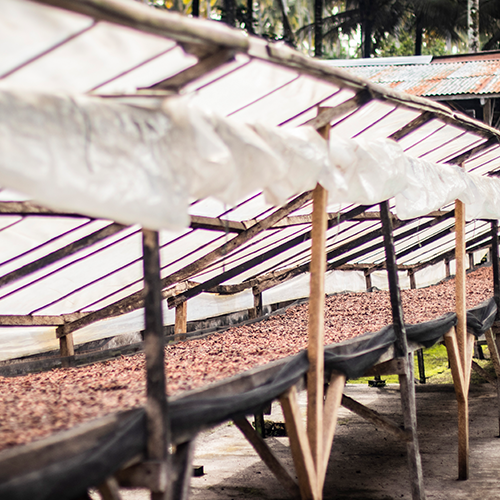
TERROIR
Kablon Farms is paving the way for specialty, high quality cacao from the Philippines to change the low price dynamics that are seen across the country. Jun, with his university degree in agricultural engineering and upbringing on cacao and coconut farms, is uniquely poised to design a farm and provide a product that fits this bill. The farm grows a mix of “criollo” (the cacao brought from Mexico in the 1700s) and newer hybrid genetics that were brought from Malaysia in the 1980s for disease resistance and higher yields. Organized into 9 zones, the farm runs fermentation trials with cacao from each zone, and from blends of zones, to generate different products with specific flavor profiles.
70 hectare bio diversified, sustainable farm (3 locations with in a 10 km radius) in South Cotabato, in Davao, Philippines.
The Philippines has a long history of cacao farming; the crop was introduced in the 1700s when a Spanish colonist brought seedlings over to the islands from Mexico.The farm is owned by the Pantua family and the crop production is managed by the eldest sibling, Ernesto Pantua Jr. (who prefers to be called Jun), who grew up traveling to the same property when it belonged to his father. Jun grew up in an era when cacao and coconut prices were high; it was pre-globalization and these products were grown and consumed by the domestic market only. Today, these prices have sunk because the Philippines has to compete with other, larger producing countries that have introduced the hybrid high yielding cacao varieties with lower and / or different production costs and methods.

TERROIR
Kablon Farms is paving the way for specialty, high quality cacao from the Philippines to change the low price dynamics that are seen across the country. Jun, with his university degree in agricultural engineering and upbringing on cacao and coconut farms, is uniquely poised to design a farm and provide a product that fits this bill. The farm grows a mix of “criollo” (the cacao brought from Mexico in the 1700s) and newer hybrid genetics that were brought from Malaysia in the 1980s for disease resistance and higher yields. Organized into 9 zones, the farm runs fermentation trials with cacao from each zone, and from blends of zones, to generate different products with specific flavor profiles.
Samples are only available from the USA
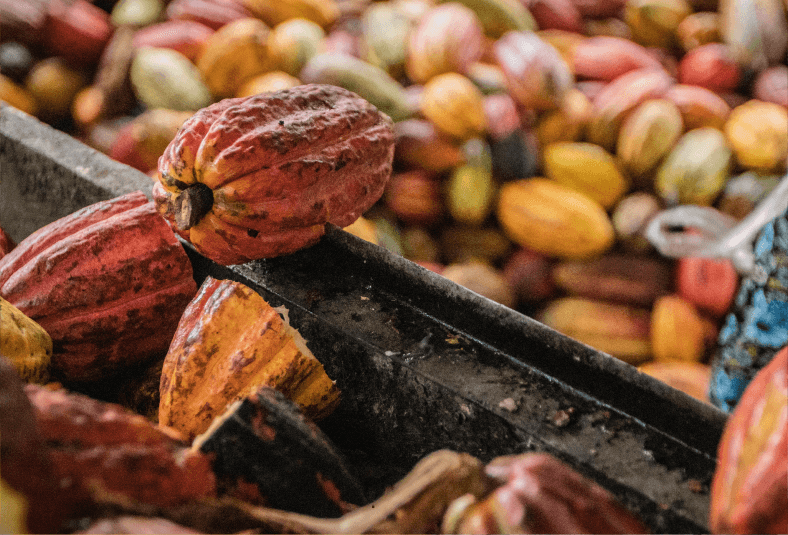
Notable Awards
2023 ICA Bronze

